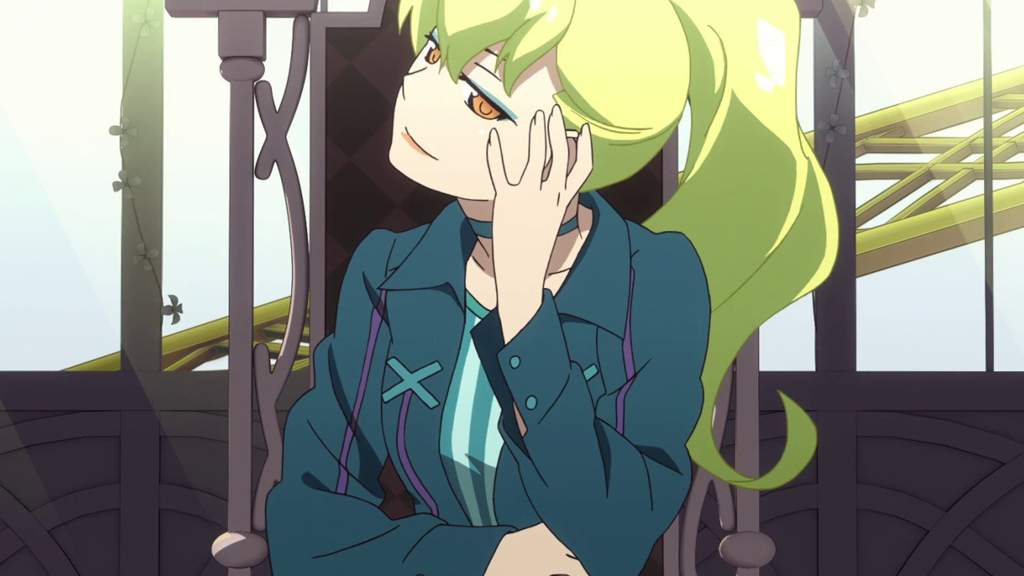

She is a super-elite international computer hacker who builds her own super-amazing hardware and software and prefers the virtual world to the real world, you see. Mild-mannered and unassuming teenage male protagonist who has secret depths of inner strength, Ii-chan, is friends with a beautiful teenage girl who is such a genius that she has trouble taking care of herself. Are you ready to play cliché bingo? Let’s go!

In the same way that one angry bird is annoying, yet hundreds of angry birds are epic, Zaregoto is so ridiculously cliché that somehow it ends up being awe-inspiring.

Zaregoto, Book 1: The Kubikiri Cycle is filled with many such bloated masses but somehow, it works.

I myself may not be the sharpest tool in the shed but, if someone is going to tell me (or at least my reader-vehicle protagonist) that I’m stupid, I would at least prefer for that person to be interesting and intelligent, not a poorly-written, bloated mass of anime clichés. Sure, it’s easy to say that a character has an IQ of 250, but it’s a bit tricky to write such a character if the author himself falls within a more normal range of intelligence, and most authors – including Nisio – fail. I am going to call this problem the Hannibal Lecter paradox. I think there’s perhaps an element of tsundere at play here, and perhaps it’s my fault for not being Nisio’s target audience, but there’s an even more annoying problem with his recurring descriptions of genius. When I read his work, I feel like he’s attacking me personally for being so stupid and incompetent, unlike his collection of beautiful geniuses. Nisio’s problem, however, is that he amps the asshole factor of Holmes and Stark all the way up to eleven and turns it directly towards the reader. Of course, genius and its practical applications are fascinating, which is why characters like Sherlock Holmes and Tony Stark are so appealing. Judging from these stories, Nisio is obsessed with the concept of genius. I didn’t get a terribly good impression of him from what I had read of his work before, which was limited to Death Note: Another Note, a collection of three short stories based on the manga xxxHOLiC (you can find my review of that one here), and the short story “Magical Girl Risuka” in the second English edition of the literary magazine Faust. I am not a big fan of NISIOISIN (who I am going to refer to as “Nisio” for my own convenience). Publication Year: 2008 (America) 2002 (Japan) ( Kubikiri cycle: Aoiro savant to zaregoto-zukai) Title: Zaregoto, Book 1: The Kubikiri Cycle


 0 kommentar(er)
0 kommentar(er)
